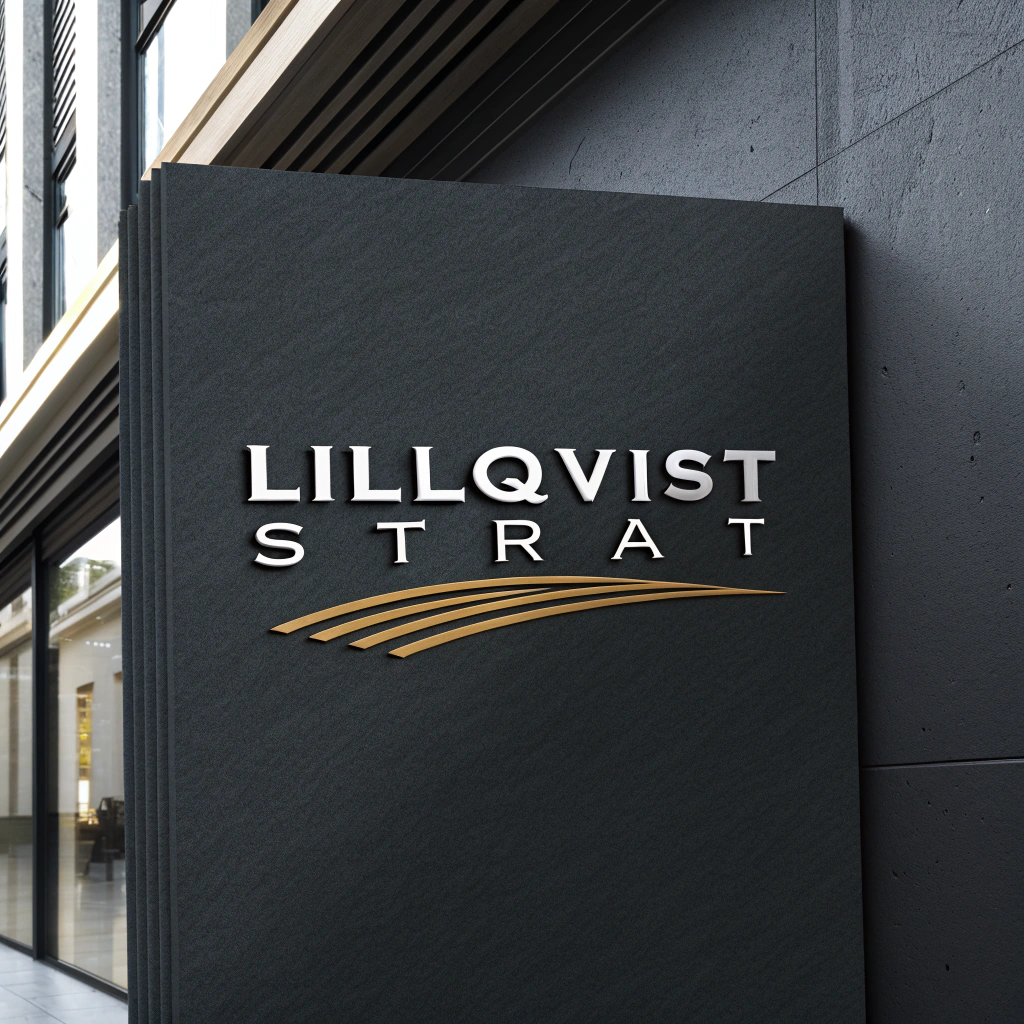Enhancing Efficiency and Trust
In today’s globalized economy, businesses face mounting pressure to ensure the integrity, transparency, and efficiency of their supply chains. Traditional supply chain systems often struggle with issues such as fraud, data manipulation, lack of transparency, and inefficiency. However, blockchain technology presents a transformative solution by offering immutable, transparent, and secure data tracking from the source to the consumer.
At Lillqvist Strat, we understand the complexities of modern supply chains, and we help businesses integrate blockchain into their operations for real-time transparency and automated processes. In this article, we’ll explore how blockchain can revolutionize supply chain management, save time, and ensure compliance and authenticity.
What is Blockchain and How Does it Apply to Supply Chains?
Blockchain is a decentralized ledger technology that allows data to be stored across a network of computers in a way that is immutable (cannot be changed or tampered with) and transparent (visible to all authorized parties). This technology is commonly associated with cryptocurrencies, but its applications extend far beyond that.
In supply chain management, blockchain can be used to track every movement of goods and materials from the source to the end consumer. Each step in the supply chain—whether it involves sourcing raw materials, manufacturing, transportation, or delivery—is recorded as a block in the blockchain, which is securely linked to the previous block. This audit trail makes it possible to trace goods back to their origin, ensuring transparency, authenticity, and compliance.
Automating Audit Trails and Compliance with Blockchain
One of the biggest challenges in managing supply chains is ensuring that goods are authentic, meet quality standards, and comply with regulations. Traditional methods of tracking goods often involve cumbersome paperwork, manual inspections, and lengthy verification processes, all of which are prone to errors and delays.
By implementing blockchain, businesses can automate audit trails that provide an unalterable record of each transaction and movement of goods throughout the supply chain. This digital audit trail can be automatically updated in real-time, ensuring that businesses have a complete and accurate record without the need for manual inspections or document verification.
For example, imagine a scenario where a retailer needs to verify the origin of a product they are selling to ensure it meets sustainability standards. With blockchain, the retailer can instantly access a transparent, immutable record showing every step the product has taken—from sourcing raw materials to final delivery—allowing for faster and more reliable verification.
Example Code for Blockchain-Based Supply Chain Tracking:
To better understand how blockchain can be applied to supply chains, here’s an example of how a simplified version of blockchain might be used to track a product’s journey:
import hashlib
import json
from time import time
class Blockchain:
def __init__(self):
self.chain = []
self.current_transactions = []
self.new_block(previous_hash='1', proof=100)
def new_block(self, proof, previous_hash=None):
block = {
'index': len(self.chain) + 1,
'timestamp': time(),
'transactions': self.current_transactions,
'proof': proof,
'previous_hash': previous_hash or self.hash(self.chain[-1]),
}
self.current_transactions = []
self.chain.append(block)
return block
def new_transaction(self, sender, recipient, amount):
self.current_transactions.append({
'sender': sender,
'recipient': recipient,
'amount': amount,
})
return self.last_block['index'] + 1
@staticmethod
def hash(block):
block_string = json.dumps(block, sort_keys=True).encode()
return hashlib.sha256(block_string).hexdigest()
@property
def last_block(self):
return self.chain[-1]
# Example: Adding a transaction in the supply chain
blockchain = Blockchain()
# Add transaction of raw material purchase
blockchain.new_transaction(sender="Supplier A", recipient="Manufacturer X", amount=1000)
# Add a new block with the transaction
blockchain.new_block(proof=200)
# Print the blockchain to view the transactions and audit trail
for block in blockchain.chain:
print(block)In this example, each block represents a transaction in the supply chain, such as the purchase of raw materials. The blockchain stores this information in a secure and immutable ledger, making it easier for stakeholders to trace the product’s journey.
Reducing the Need for Manual Inspections and Document Verification
One of the most significant benefits of blockchain in supply chains is that it can reduce the need for manual inspections and document verification. In traditional supply chains, ensuring that all documentation is correct and up-to-date can be an exhausting and time-consuming task. Paperwork, spreadsheets, and emails are often used to track shipments, verify compliance, and record transactions. Unfortunately, this manual process is prone to errors, delays, and inefficiencies.
Blockchain eliminates the need for such manual tasks by creating a transparent digital record that is automatically updated in real-time. This allows all stakeholders—whether they are suppliers, manufacturers, distributors, or retailers—to access the same up-to-date information, reducing the chances of mistakes or fraud. The blockchain ensures that data is correct, verified, and cannot be altered once recorded.
Example Code for Automating Supply Chain Verification:
def verify_compliance(transaction, compliance_criteria):
# Simulate checking the compliance of a transaction
if transaction['amount'] >= compliance_criteria['min_order']:
return "Transaction meets compliance."
else:
return "Transaction does not meet compliance."
# Example: Verifying compliance for a raw material order
transaction = blockchain.chain[1]['transactions'][0] # Retrieve the first transaction
compliance_criteria = {'min_order': 500}
print(verify_compliance(transaction, compliance_criteria))In this code, a simple function checks if a transaction meets specific compliance criteria (e.g., minimum order size). This type of automated verification could easily be integrated into a blockchain system, saving time and resources while ensuring compliance.
Achieving Transparent and Efficient Supply Chains
Implementing blockchain technology in your supply chain can dramatically improve transparency, automate compliance checks, and reduce the time spent on manual processes. By creating immutable and transparent audit trails, blockchain enables businesses to track goods from source to consumer in real-time, providing greater confidence in product authenticity and compliance.
At Lillqvist Strat, we specialize in helping businesses integrate blockchain technology into their supply chain systems. While building a blockchain-based supply chain solution can take time, our extensive experience and proven track record ensure you’ll receive an optimized, reliable, and efficient system designed to meet your specific needs. Let us help you transform your supply chain with blockchain technology for greater efficiency, transparency, and cost savings.

Lillqvist Strat consults on business developement, software projects, automation, SOPs, analytical tools and more.
Contact me today to get started on our journey to higher profits, more revenue and happier employees!
Go to Contact now


